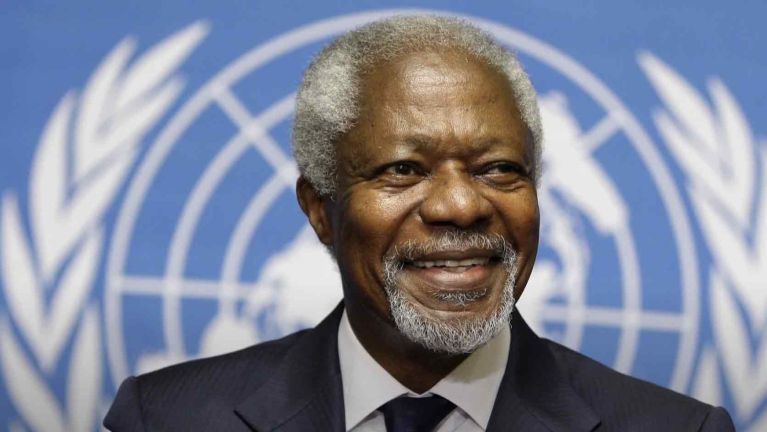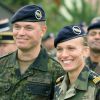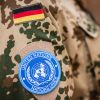An anchor of stability in West Africa
The Kofi Annan International Peacekeeping Training Center in Ghana has evolved into a hub for matters related to peacekeeping and security.
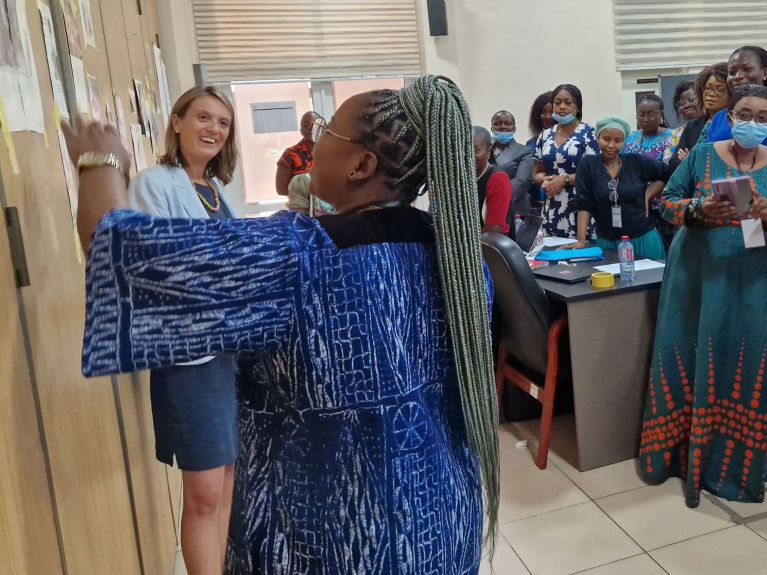
Hannah Nestor is full of praise. “I have learned a lot,” the law enforcement expert from Namibia says, adding that she “would greatly recommend the course”. The police officer Fatour Fofana from Gambia is just as enthusiastic: “I have become more aware of my responsibility as a female leader, and that’s a lesson learned that will stay with me.” The Ghanaian officer Cecilia Erzuah has learned how to best address the different competences and requirements of her male and female soldiers, in particular. She, too, would come back in a heartbeat.
The three of them have just completed a two-week course on female leadership in peace and security at the Kofi Annan International Peacekeeping Training Center (KAIPTC), and their feedback is very positive. Just like Hannah Nestor, Fatour Fofana and Cecilia Erzuah, thousands of security workers have made their way to Ghana over the past 20 years, to take part in qualified training measures.
Why was the KAIPTC established?
The KAIPTC was founded in 2004 and it is the biggest organisation of its kind in West Africa, as well as among the most important ones of the entire continent. It was set up because the member states of the African Union wanted to establish their own peace and safety agency, following the numerous conflicts in the 1990s. This organisation was to include a training centre.
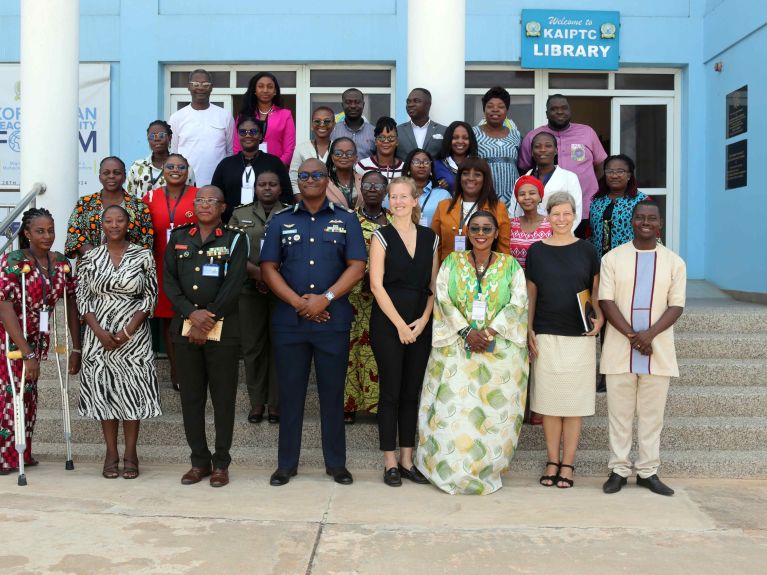
Ghana already had plenty experience from international peacekeeping missions at the time, and the country’s capital Accra was therefore selected for setting up a centre with international support. The centre is named after the former UN Secretary General Kofi Annan, a Ghanaian citizen who strongly advocated for further development of peacekeeping missions during is time with the United Nations. Germany was substantially involved in establishing the centre and remains one of its most important supporters to this day.
Training for more than 30,000 people
The KAIPTC trains military personnel, police officers and civilians for participation in international peacekeeping missions. In addition, it offers academic master’s programmes, such as “Conflict, Peace and Security” and is involved in research activities, too. However, its focus is on training measures that are held directly at the centre, digitally and also in other places in West Africa, using mobile teams.
More than 30,000 individuals – mostly soldiers and police officers – from 90 countries have taken part in KAIPTC training measures since the centre was first established. 46 nations were represented in 2024 alone. While the participants are from all over the world, including Europe, the focus is on Africa.
What types of courses does the KAIPTC offer?
The range of courses is just as diverse as the requirements in relation to peacekeeping missions, in which ever more complex and challenging crises and conflicts need to be addressed. The topics of the courses therefore range from multi-dimensional peacekeeping operations via security training for high-risk regions and intelligence work through to disarmament, reintegration, logistical issues and, of course, the role of women in peacekeeping missions.
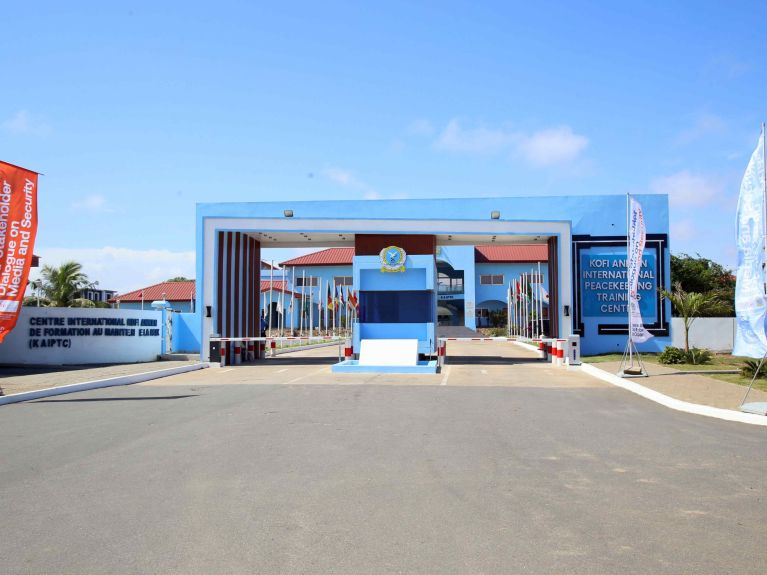
Security experts also gather at the KAIPTC at regular intervals, to discuss the latest developments and draw up strategies for a more peaceful future. “The KAIPTC is more than just a training centre,” says Teresa Krafft from Germany’s development agency GIZ, who has been in charge of a team for supporting the centre on behalf of the Federal Ministry for Economic Cooperation and Development (BMZ) since 2022. “The centre was originally established to be able to better prepare African peacekeepers for their roles in blue-helmet missions as well as African-lead peacekeeping missions. Meanwhile it has, however, not only expanded its range of offerings, but it has also become a stabilising factor for the entire region.”
What makes Ghana an important partner for Germany?
Ghana is considered a reliable West African partner for Germany. This distinguishes the country from a number of others in the region that have mostly been making headlines with military coups and volatile political systems in recent years. Ghana is considered the “safest country in the region, and likely the safest country in all of Africa,” Norbert Wienold points out. The former police officer works at the KAIPTC on behalf of UNITAR (United Nations Institute for Training and Research) as a partner of the Federal Foreign Office.
Dieses YouTube-Video kann in einem neuen Tab abgespielt werden
YouTube öffnenThird party content
We use YouTube to embed content that may collect data about your activity. Please review the details and accept the service to see this content.
Open consent formGhana manages the centre, however, there are also international experts such as Teresa Krafft and Norbert Wienold who provide support in its day-to-day business. Krafft helps to steadily improve and develop the KAIPTC, for example by increasing digitisation and enhancing the course system. Wienold, on the other hand, is able to contribute to content-related matters, thanks to his expertise as a police officer with a large amount of international experience.
What Ghana appreciates about Germany as a partner
The Ghanaian side appreciates Germany's great commitment from day one. The partner’s role and significance for the KAIPTC has been highlighted many times and at various occasions, most recently by the centre’s retiring Commandant Richard Addo-Gyane, who thanked Berlin for the “constant and tireless support” over the past 20 years.
“International support plays a key role for the centre,” Teresa Krafft and Norbert Wienold agree. They help to reinforce the role of Ghana and the KAIPTC as West African anchors of stability, “especially in turbulent times such as these”.
